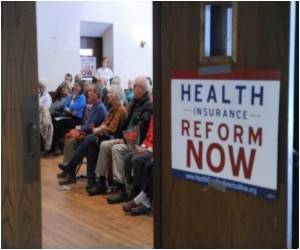Reduction in absolute health inequalities from causes amenable to healthcare in England found with policy of higher NHS spending in deprived areas compared to affluent ones.

So researchers based at the universities of Liverpool and Durham analysed trends in NHS spending per head of population between 2001 and 2011 in the 20% most deprived and the 20% most affluent local authorities in England.
They then looked at trends in mortality from causes amenable to health care within these local authorities over the same period.
Amenable mortality is defined as mortality from causes for which there is evidence of preventability given timely, appropriate access to high quality care.
Between 2001 and 2011, NHS spending in the most deprived areas increased by 81% (from £1074 per head to £1938 per head) compared with 70% in the most affluent areas (from £881 per head to £1502 per head).
This increase in NHS resources to deprived areas was associated with a reduction in the gap between deprived and affluent areas of 35 male deaths per 100,000 and 16 female deaths per 100,000 from causes amenable to healthcare.
Advertisement
In contrast, there was no significant association between absolute increases in NHS resources and absolute improvements in either male or female deaths amenable to healthcare in the more affluent areas.
Advertisement
They conclude: "Our study suggests that any change in resource allocation policy that reduces the proportion of funding allocated to deprived areas may reverse this trend and widen geographical inequalities in mortality from these causes."
These results are encouraging and provide evidence for continuing to target NHS resources at deprived areas, say Azeem Majeed and Michael Soljak from Imperial College London in an accompanying editorial.
However, they warn this may be more difficult in the current political and financial climate "as the coalition government has sharply curtailed the growth in NHS spending that England previously experienced."
They point out that NHS spending "is only one component of an effective strategy to reduce health inequalities" and say other key areas such as housing, education, and employment, and the wider determinants of health inequalities, "also need to be dealt with by national and local government and by other public sector organisations."
Source-Eurekalert









